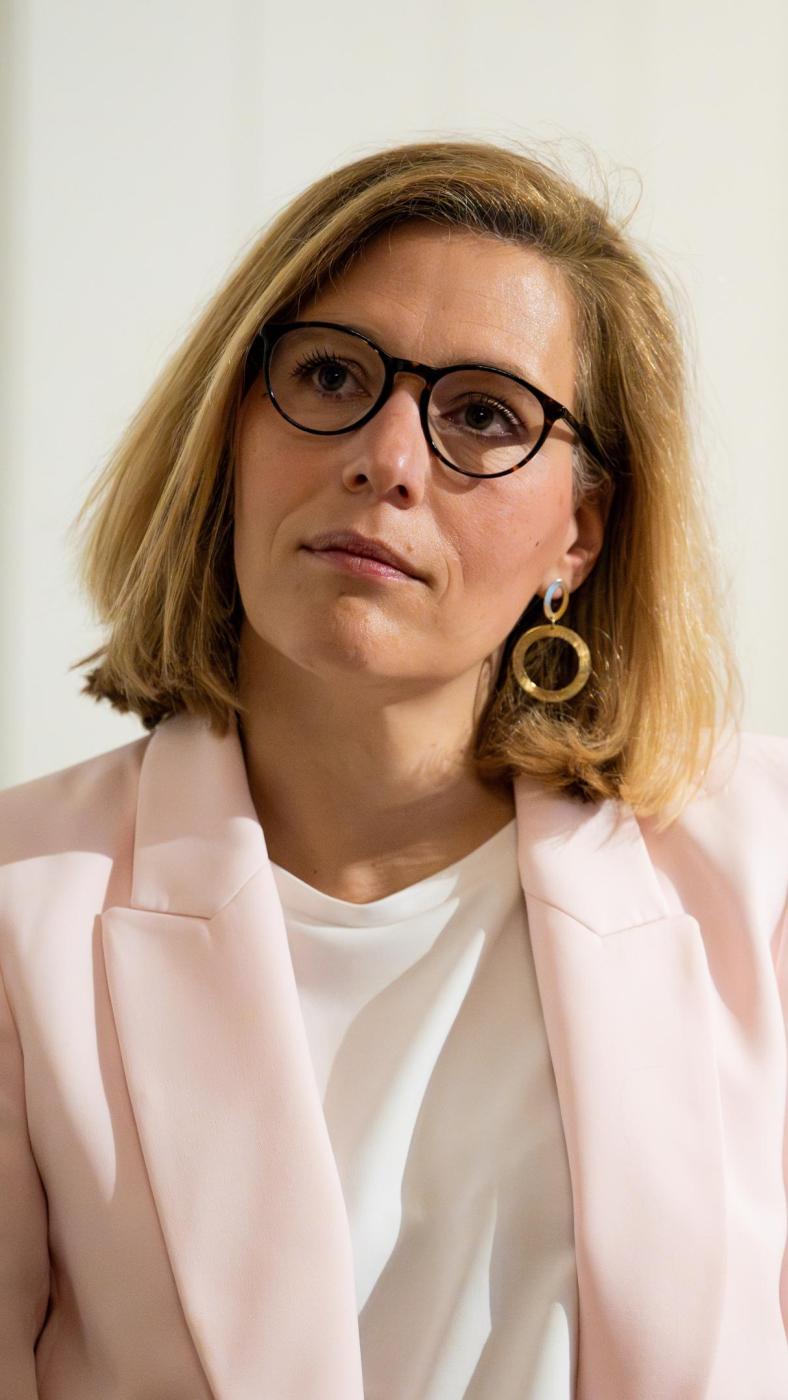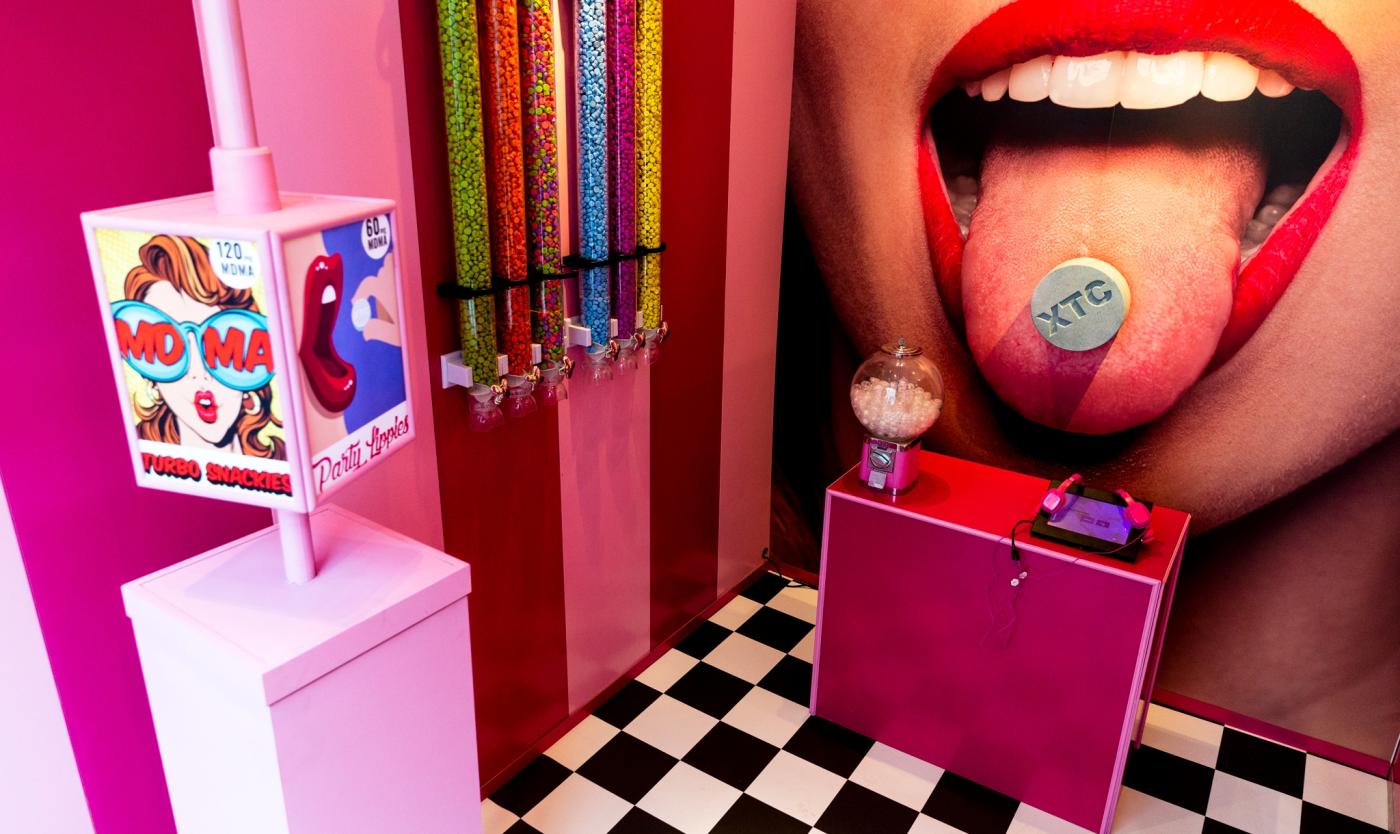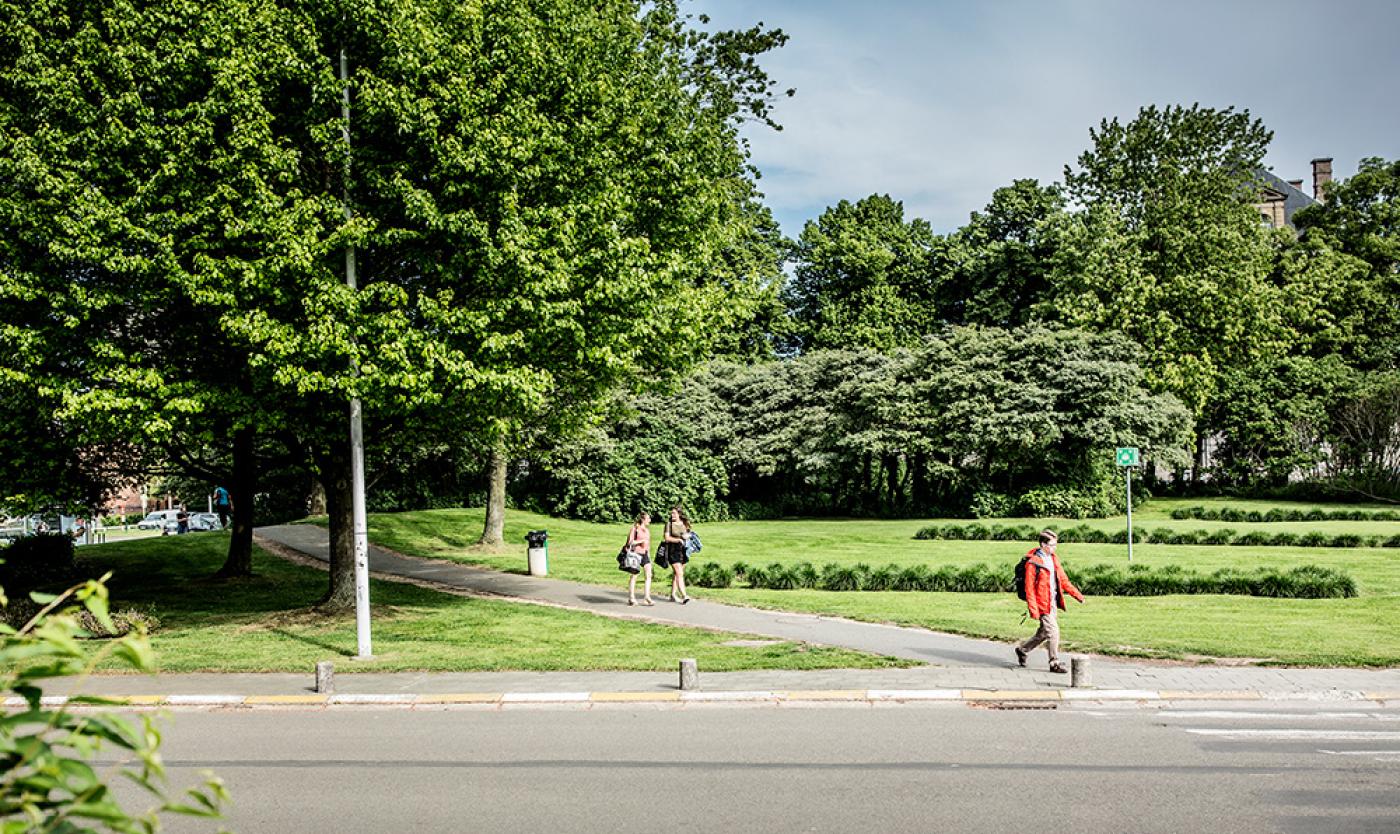Before becoming the National Drugs Commissioner, Ine Van Wymersch earned her stripes with the police, public prosecutor’s office, and judiciary. She didn’t walk away with a blind belief in law and order. “Repression alone won’t solve the drug problem.”
Ine Van Wymersch previously worked as a lawyer, a legal advisor to the local Brussels police, a youth magistrate at the Brussels Public Prosecutor’s Office, and as a Public Prosecutor. Since February 2023, as National Drugs Commissioner, she has coordinated the fight against drug crime. Despite her policing and legal background, she doesn’t believe in repression as the only solution.
Ine Van Wymersch:
“That has a lot to do with the people doing the dirty work. In Brussels, they are ‘disposable workers’: young people in precarious situations, with no future prospects, often without a residence permit. They have little to lose and aren’t concerned about collateral damage – it’s not ‘their’ neighbourhood, after all. If they are minors, they believe the justice system can’t touch them, which isn’t true. Our youth justice system is tough, and a closed institution is no summer camp.”
You seem to sympathise with them?
“I certainly don’t condone their behaviour, but it’s important to understand the context. Society fails to provide a future for all young people, leaving a gap that criminal organisations exploit.”
What is the impact of drug-related crime on society?
“I often explain this with a metaphor. Drug-related crime is like an iceberg. The bombs and grenades that make the news are just the visible tip. Beneath the surface lies a much greater danger: an underworld that infiltrates the upper world, with criminals laundering dirty money, undercutting legitimate businesses, and turning neighbourhoods into unliveable spaces with impunity. This kind of crime is less visible but tears the fabric of society apart.”
Is the situation in Brussels different from elsewhere?
“Drugs are everywhere in the country. Recently, the region around Roeselare, Ypres, and Diksmuide has been flooded with flakka, the so-called zombie drug. The situation in Brussels is unique, though, due to the young and growing population and rising poverty levels. In a big city, many people in precarious situations are concentrated, making it an ideal recruitment ground for criminal organisations. On top of that, Brussels hosts several federal institutions, like the Immigration Office, which other major cities don’t have.”
“We must melt the iceberg together”
What does this mean for tackling the problem?
“It means the approach needs to be broad. There’s a need for both direct and indirect strategies. The direct approach involves policing and legal measures: carrying out house searches, seizing drugs and illicit funds, and making arrests. This directly chips away at the iceberg. But the indirect approach is equally important. Think about the role of local governments, schools, sports clubs, parents, social and community work, asylum centres, the private sector, and other societal players. If all of them contribute, we can raise the water temperature and melt the rest of the iceberg. A compassionate, resilient society that leaves no one behind is the best weapon against drugs and drug crime.”
Can the Vrije Universiteit Brussel contribute to this as well?
“Absolutely! Not by becoming an extension of the police, but by raising awareness and providing information to students, offering accessible support, and re-examining the campus infrastructure, among other things. When all the actors in society play their part, the water temperature rises, and the iceberg melts. Furthermore, you create an environment where a new iceberg can’t form. It makes it literally too hot for criminal organisations to operate. Only then will we be working on a long-term structural solution.”
So, it’s about community building?
“Exactly. This is a societal problem. We need to invest in the social fabric and provide support to people in precarious situations. As National Drugs Commissioner, I see room for improvement in this area.”

Not the police and judiciary? Many people believe that’s where more resources are most needed.
“It’s not an either-or situation; it’s both: we need to invest in the police and public prosecutor’s office, and in society. For example, significant investments are needed to conduct effective money laundering investigations. Investments in technology, specialised training, and international joint investigation teams are also crucial. But equally important is investing in the community, such as in open spaces and sports infrastructure. Many sports clubs face long waiting lists and a shortage of pitches. Address that issue, and they’ll be able to keep more young people off the streets. These clubs offer young people much more than just an hour of football practice.”
Brussels is focusing on hotspot neighbourhoods. What are those, and what happens there?
“These are around ten neighbourhoods where the drug problem is tackled in a concentrated manner, through a collaboration between the police, public prosecutor’s office, local government, and community organisations. Safe Brussels, which coordinates safety and prevention in the Brussels-Capital Region, is an important partner in this. Since the issues vary from one neighbourhood to another, the approach is different for each. Peterbos is not the same as Bethlem Square, and that’s different again from Square Jacques Franck. However, everywhere, the policy follows the system of Clear, Hold, Build.”
What does Clear, Hold, Build mean?
“These are three phases. The first is Clear: regaining control and addressing those causing the trouble. The police and city services intervene en masse and visibly, while structural investigations take place behind the scenes. Neighbourhood committees and residents are invited to reclaim their space in the area. Then you move on to the second phase: Hold. You maintain the improved situation, for instance, by removing dealers from their social housing and the neighbourhood. They’re offered help to rebuild their lives elsewhere. The third phase is Build: working on prevention and social cohesion. It’s a multidisciplinary, long-term method.”
Does the method really work?
“The method has yielded positive results in several British cities. Jurgen De Landsheer, the Chief of Police for the Zuid Police Zone, confirms this. In Peterbos, for example, residents are starting to regain a sense of perspective. Trust in the police and government is increasing, which makes people more inclined to provide the police with information or ask for help when problems arise. Shopkeepers feel confident enough to open newsagents or other businesses. This brings new life to the neighbourhood.”
Doesn’t this just shift the problems to other areas?
“The surrounding neighbourhoods and the rest of the city are also included in the approach. Otherwise, you would indeed see the problems shift and create new hotspot areas. This method can only succeed if all stakeholders are on board and you sustain the effort over time. The Clear-Hold-Build cycle is a structural methodology that needs to be repeated regularly. Sometimes you might already be in the third phase – Build – but suddenly need to return to the first phase – Clear. In the fight against drugs and drug-related crime, you must constantly stay alert and never rest on your laurels.” *
The Great Drugs Debate
Like other major cities, Brussels is grappling with increasing drug use and drug-related crime. What is the best approach, for both Brussels and the smaller community that is the VUB? Can we learn something from Portugal, which decriminalised drugs and refers users to a health commission? Or from Iceland's youth prevention model?
The VUB invites you to The Great Drugs Debate (in Dutch). On 27 November, Ine Van Wymersch (National Drugs Commissioner), Jurgen De Landsheer (Chief of Police, Zuid Police Zone), VUB Professor Cleo Crunelle (addiction research expert), and other experts will debate the problems and potential solutions. This event is part of the Public Programme.
Details:
- Date: Wednesday, 27 November 2024
- Time: 20:00 – 22:00
- Location: VUB Main Campus Etterbeek, Pleinlaan 2, 1050 Ixelles
The world needs you
This initiative is part of VUB's public programme, a programme for everyone who believes that scientific knowledge, critical thinking and dialogue are an important first step to create impact in the world.
As an Urban Engaged University, VUB aims to be a driver of change in the world. With our academic edcuational programmes and innovative research, we contribute to the Sustainable Development Goals of the United Nations and to making a difference locally and globally.
*This is a machine translation. Please excuse us for any inaccuracies.

